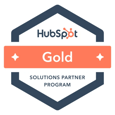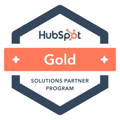Why is Relationship Selling So Effective? Look Inside The “Monkeysphere”
What do Monkeys have to do with building relationships to increase sales?
A lot, actually. Stick with me here.
In the 1990’s, British anthropologist, Robin Dunbar, studied primates and found a correlation between primate brain size and average social group size. By using the average human brain size and extrapolating from the results of primates, he proposed that humans can only comfortably maintain 150 stable relationships.
Dunbar’s number, affectionately termed, the “Monkeysphere” in a 2007 Cracked article, represents the number of people one knows and keeps social contact with consistently (and yes, my 6 year old advised me that not all primates are monkeys—but I didn’t make up the term and it sounds good). The Monkeysphere does not include people known personally with a ceased social relationship (Old Friends), nor people just generally known with a lack of persistent social relationship (Acquaintances).
In other words, people flow in and out of your Monkeysphere—especially with the access we now have through social media to people that were once not in our physical proximity but are now in our lives via our laptops, phones and tablets.
This describes our limited capacity to conceptualize others as distinct and relevant individuals in our lives. Those outside our individual Monkeysphere are not really considered people at all, but one-dimensional bit characters.
Hmmm...does this explain why cold calling results stink like Limburger cheese? Only 2% of cold calls result in an appointment. Simply showing up doesn’t mean you can generate a relationship or will gain trust or access. Imagine if you were a Capuchin monkey that knocked on the door of a neighboring tribe and immediately expected access to the best figs and termite mounds. Yeah, I’m thinking that wouldn’t go over very well.
Building strong and meaningful professional relationships has always been a successful sales approach but now we understand why and how trust, credibility and influence are tough to build without having a relationship with someone. Without the relationship, you remain rather faceless, vague and one dimensional. However, if you’re in someone’s Monkeysphere, you are visible and valued and can be of influence when they are putting their decision making criteria together.
Sure, you can complete sales transactionally without having an enduring relationship. But “transactions” don’t usually generate referrals, create advocates or encourage brand loyalty. It’s extremely important to build meaningful, insightful relationships if you’re selling a more complex product or service, are selling against a deeply ingrained incumbent or are in an industry with ever increasing larger buying committees.
So, how do you enter someone’s professional Monkeysphere?
Leverage Relationships
Talk one monkey to another. If Bill finds you valuable, trustworthy and credible and Bill is a peer to Barbara, ask Bill to sponsor your introduction to Barbara. It’s well documented that sales professionals do not leverage referrals as a powerful sales resource. 91% of customers say they’d give referrals but only 11% of sales people ask for them.
Leveraging a trusted relationship reduces the risk for someone who doesn’t know you by banking on the credibility of connection. Transference of trust is an excellent way to begin a relationship—the key here is you build upon that introduction with value and insight before you start selling. Leverage your relationships for referrals and introductions both online and in real life.
Leverage Audience Development
Provide valuable information and insights to not just targeted buyers but to a larger audience that can find you useful. Use social media, blogs, email, podcasts, newsletters, posting, publishing or curation to bring your particular insights, expertise and point of view to help people understand and get to know you.
This isn’t a one sided conversation, though. Don’t forget that engagement is a key to building relationships. You put yourself out there but must also participate and respond to conversations and triggers to genuinely build trust and credibility. Sharing and promoting others helps them also achieve their objectives and will deepen and strengthen your relationships.
There’s no way around developing true and meaningful relationships in effective selling.
It’s not a revolutionary concept though some modern day sales training would have you think that relationship selling is the hottest new advance in business development. Relationships have always been the most effective route to trust and credibility and without those, you are going to be hard pressed to become a part of someone’s personal or professional Monkeysphere—which is integral to gain access to influencing or impacting their decisions.
.webp?width=12693&height=4513&name=Sauce%20Logo%20Dark%20Ht%20(1).webp)

.webp?width=180&height=64&name=Sauce%20Logo%20Dark%20Ht%20(1).webp)











